2025 CAN-AM OUTLANDER 1000R XT-P: FIRST TEST
New Chassis, New Power
2025 CAN-AM OUTLANDER 1000R XT-P
New chassis, new power – By the staff of Dirt Wheels
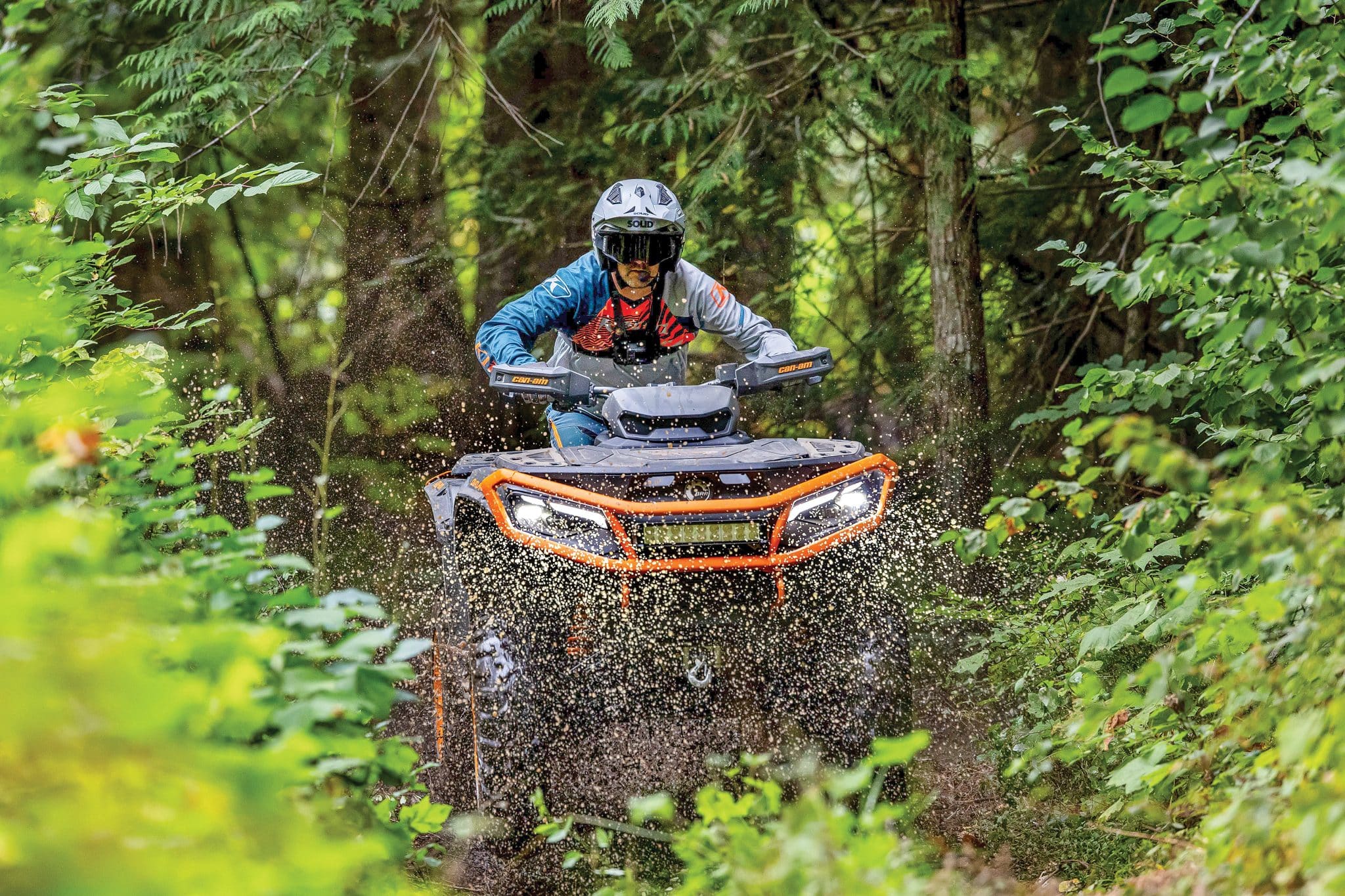
Can-Am has been in the mode of revising its ATV lineup as of late. The most recent updates have been to the Outlander 850 and 1000 machines. For 2025, both machine are actually powered by a 999cc, twin-cylinder mill cradled by an all-new chassis.
NEW CHASSIS
The new frame is actually identical to the one used for the 500–700-labeled machines. It’s a new design for Can-Am utilizing dual A-arms on all four corners instead of the rear trailing-arm setup Can-Am was known for over the last couple of decades. Rotax builds the engine, and it’s a new V-twin design with double overhead cams, a single throttle-body fuel-injection system that can be manipulated via a switch on the dash that you can toggle to access three different power modes. The V-twin configuration allows it to sit in the center of the chassis, keeping the seat area as thin as possible. A massive 5.1-gallon fuel tank takes care of the thirsty V-twin, and its weight is also centralized under the seat.

HOW MUCH DOES THE 1000R WEIGH?
It’s a big beast and it tips the scales at a half-ton. Can-Am claims the actual weight is 967 pounds dry. By comparison, the Polaris Sportsman 1000 weighs in at 867 pounds. The Japanese models, such as Kawasaki’s Brute Force 750, Yamaha Grizzly 700 and Honda Rubicon 680, are all 300 pounds lighter.
Does it feel big when riding? No, not bigger than we are used to. All big-bore 4x4s these days are big, and you have to use the power to throw them around. Gone are the days of the 500-pound machines we rode and our bodyweight actually mattered. With the new 1000, all you have to do is stab the throttle and hang on.
HOW’S THE SUSPENSION?
Suspension numbers top out at 10.8 inches up front and 12 inches in the rear end. On the R-model we tested this month, the shocks feature new three-position adjusters for slow-speed compression and spring-preload collars for more precise tuning. In stock trim, this suspension setup was way more compliant than the Outlander was with the older chassis. Plus, gone is the body roll that we felt with the old chassis.
You can hit normal trail obstacles hard, and the shocks will soak them up to a point of course. But, for the average rider, the Outlander will soak up tree roots, rocks and ruts without negative feedback.
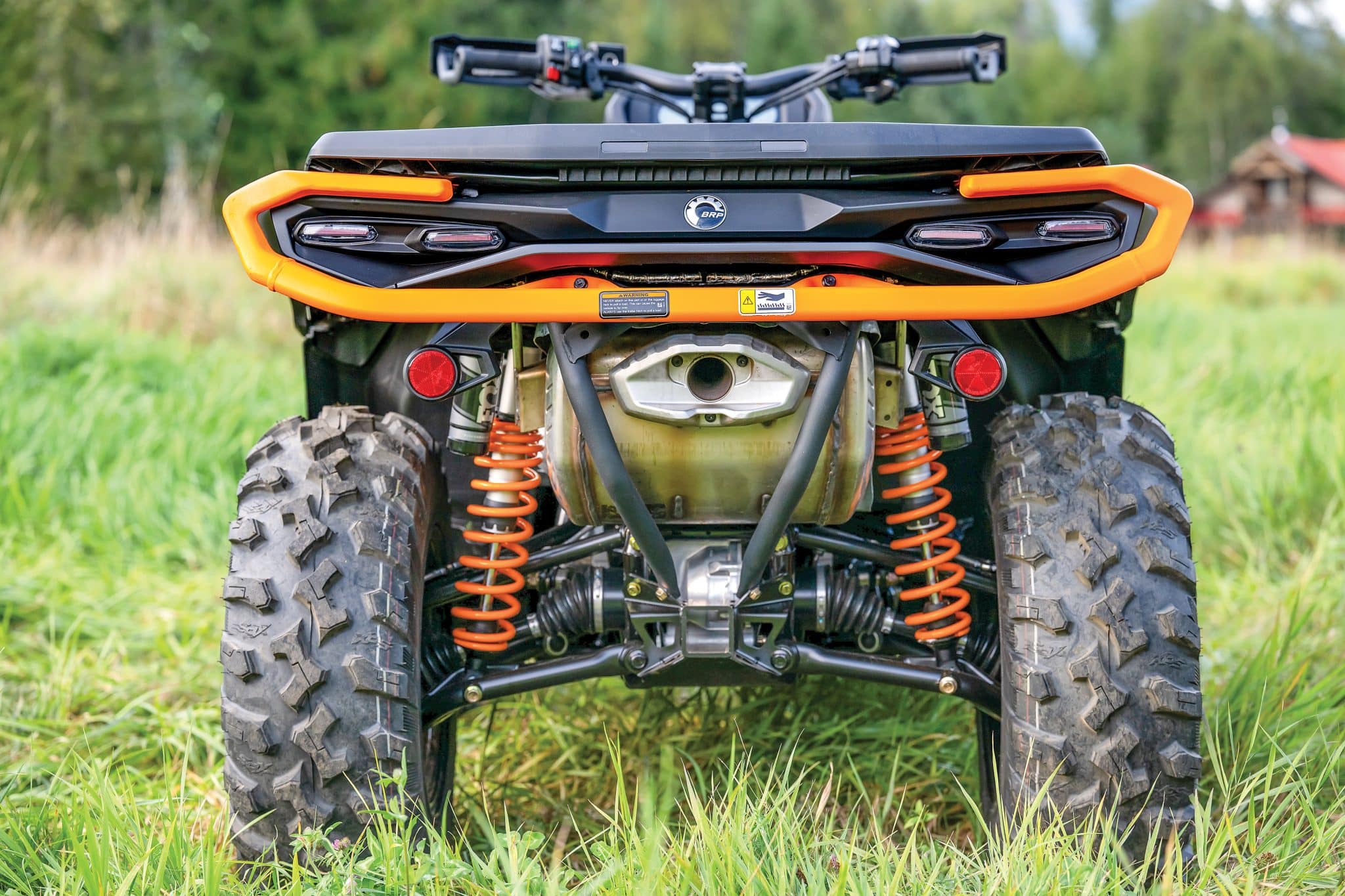
WHAT ABOUT POWER?
In the introduction we mentioned both the Outlander 850 and 1000 are new, and they both feature the same 999cc, twin-cylinder engine. Can-Am installs a different tune in each machine to give them their unique power options. Hardware-wise, they are exactly the same. According to Can-Am, the 1000R churns out an incredible 101 horsepower and 69 pound-feet of torque. The operator can also manipulate that power via the handlebar switch and choose either Standard, Work or Sport modes. In fact, the Sport throttle map was actually too much power for trail riding. For a long day in the saddle, we preferred to use Normal mode. Here, power is smooth yet strong enough to entertain. Out in the open, we could hit 70 mph, but we didn’t have a trail long enough to find top speed.
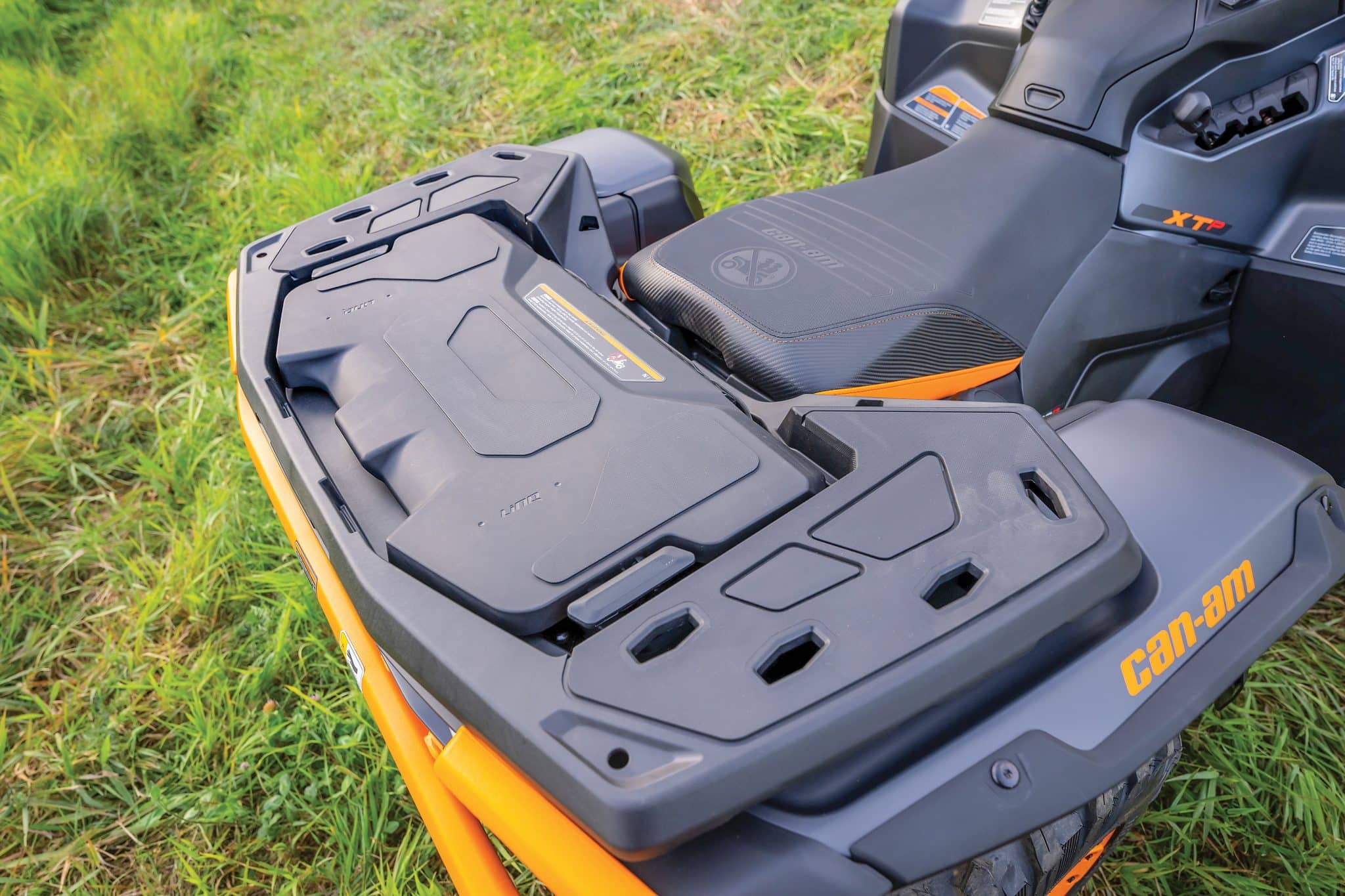

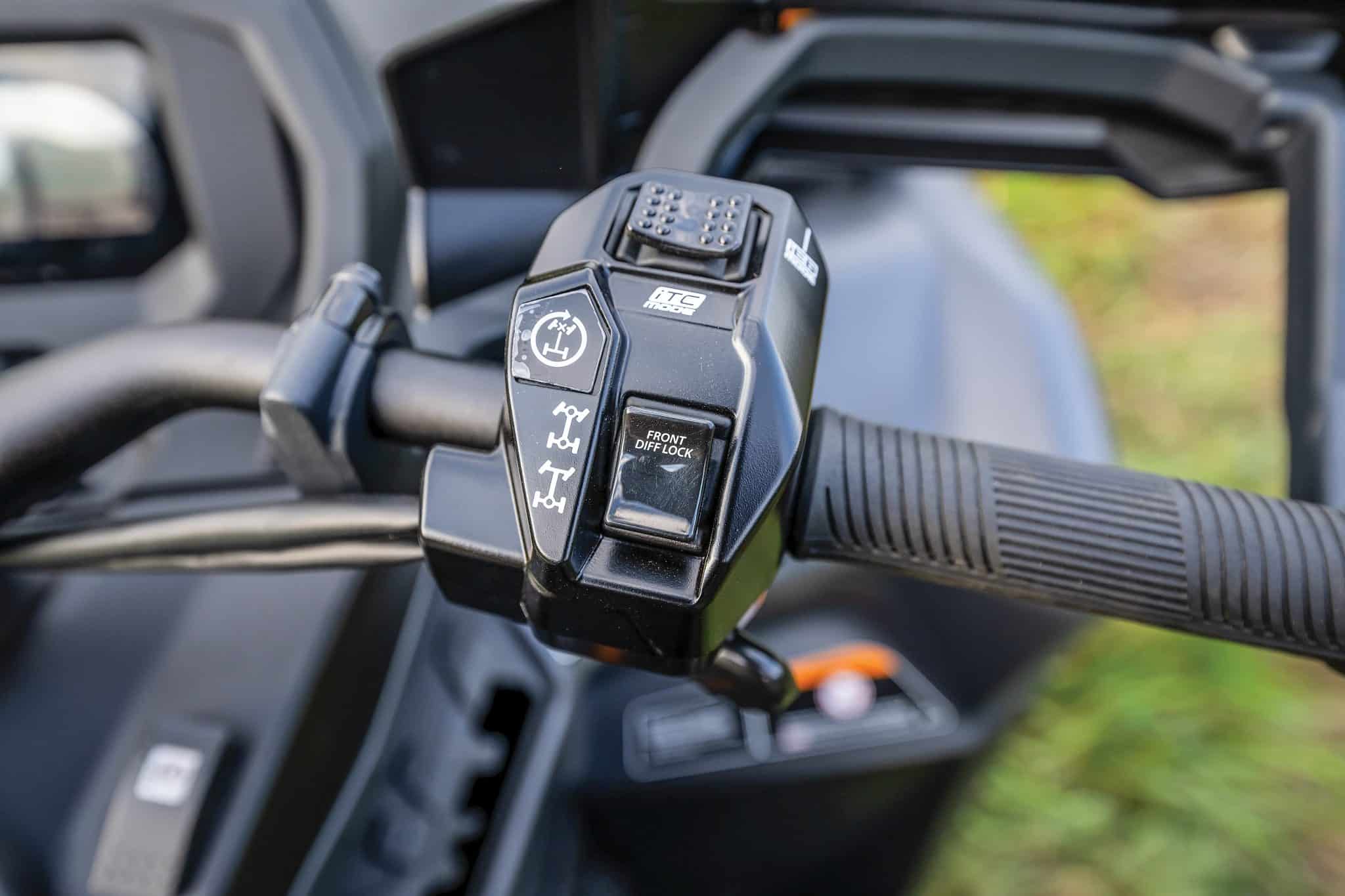
BODY AND CONTROLS
This flagship ATV has a new, sleeker look with refined lines; modern LED lighting; and a convenient storage box located under the rear rack and an even larger one up front that’s large enough to carry BRP’s accessory 3-gallon gas can. In the rider’s seat, it’s the most modern-looking ATV out there.
In front of the rider you will find a small storage box large enough for extra gloves or a cell phone, and on the model, we tested there is a Type-C power cable. On the handlebars sits a 7.6-inch-wide screen with more info than you need to know about. There’s also a switch on the bars that controls what BRP is calling “intelligent engine braking.” In low, you can crawl down steep hills as low as 2 mph. For faster riding, you can switch it to give you the off-throttle engine hold-back you desire; although, it’s not as aggressive as a manual transmission.
The rider has lots of choices when riding the new Outlander. Dynamic EPS offers three settings: the new Visco-Lok front diff can be locked, run in limited-slip 4WD or opened for 2WD drifting fun.
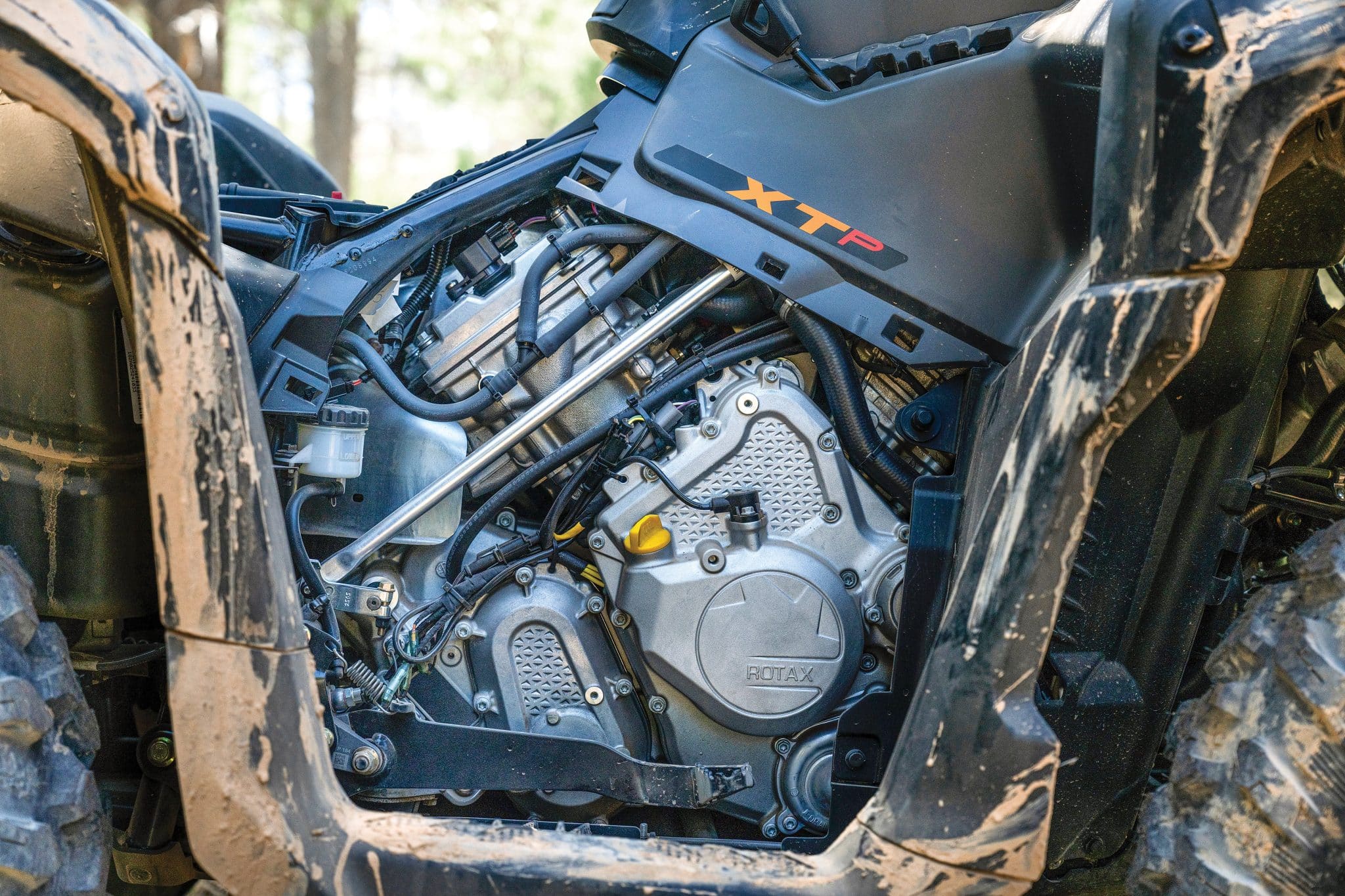
CONCLUSION
It will take a minute to get over the $16,699 price tag. We will admit, you get what you pay for with the new, more manageable engine; better-handling chassis; and well-thought-out bodywork and storage. The fact that you can actually get most of this for $3000 less in the 850 configuration is even easier to swallow. Regardless of your budget, if you are looking for the most feature-filled 4×4 ATV out there, this is it, and it’s a good one, too.
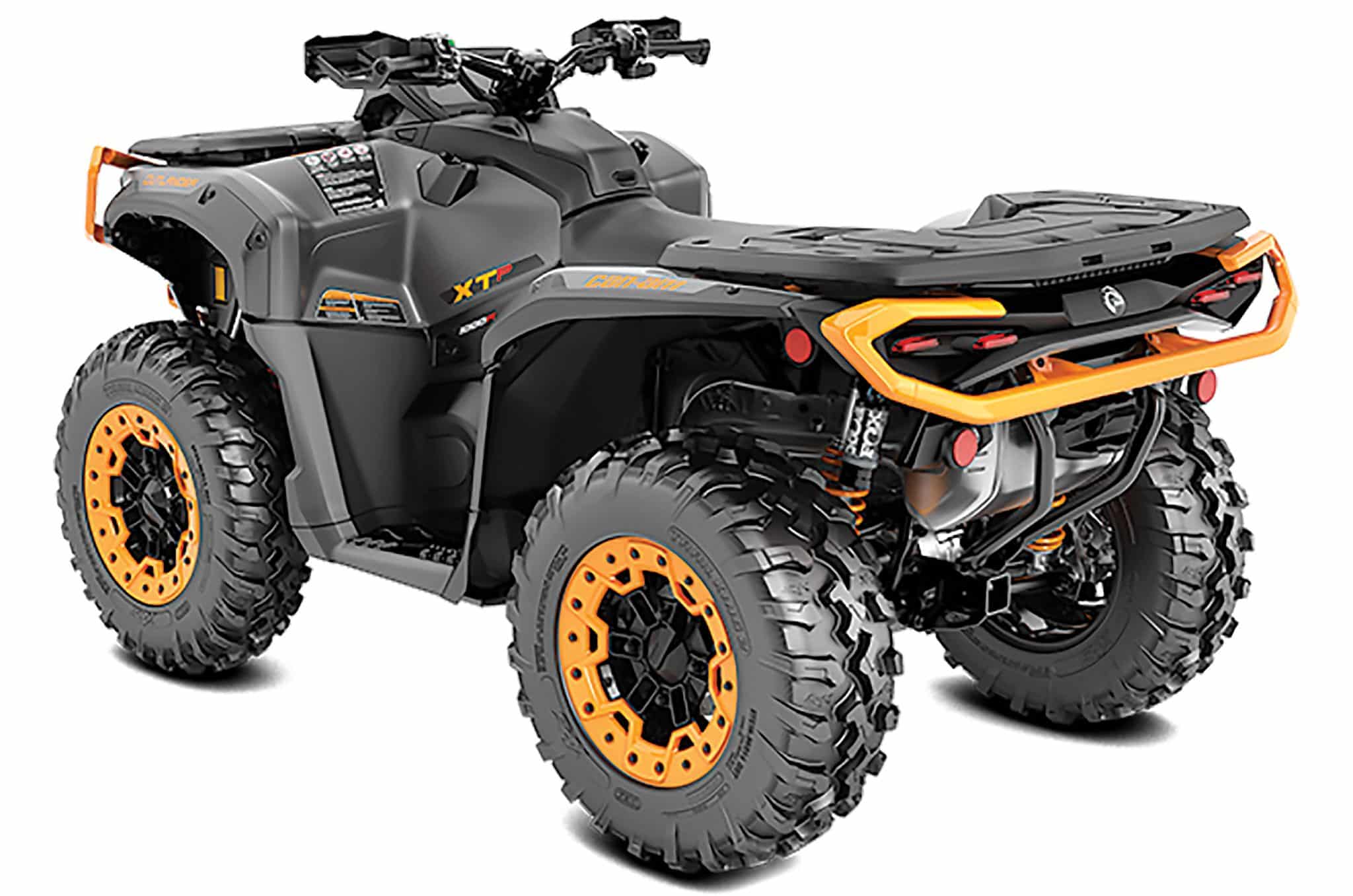




Comments are closed, but trackbacks and pingbacks are open.